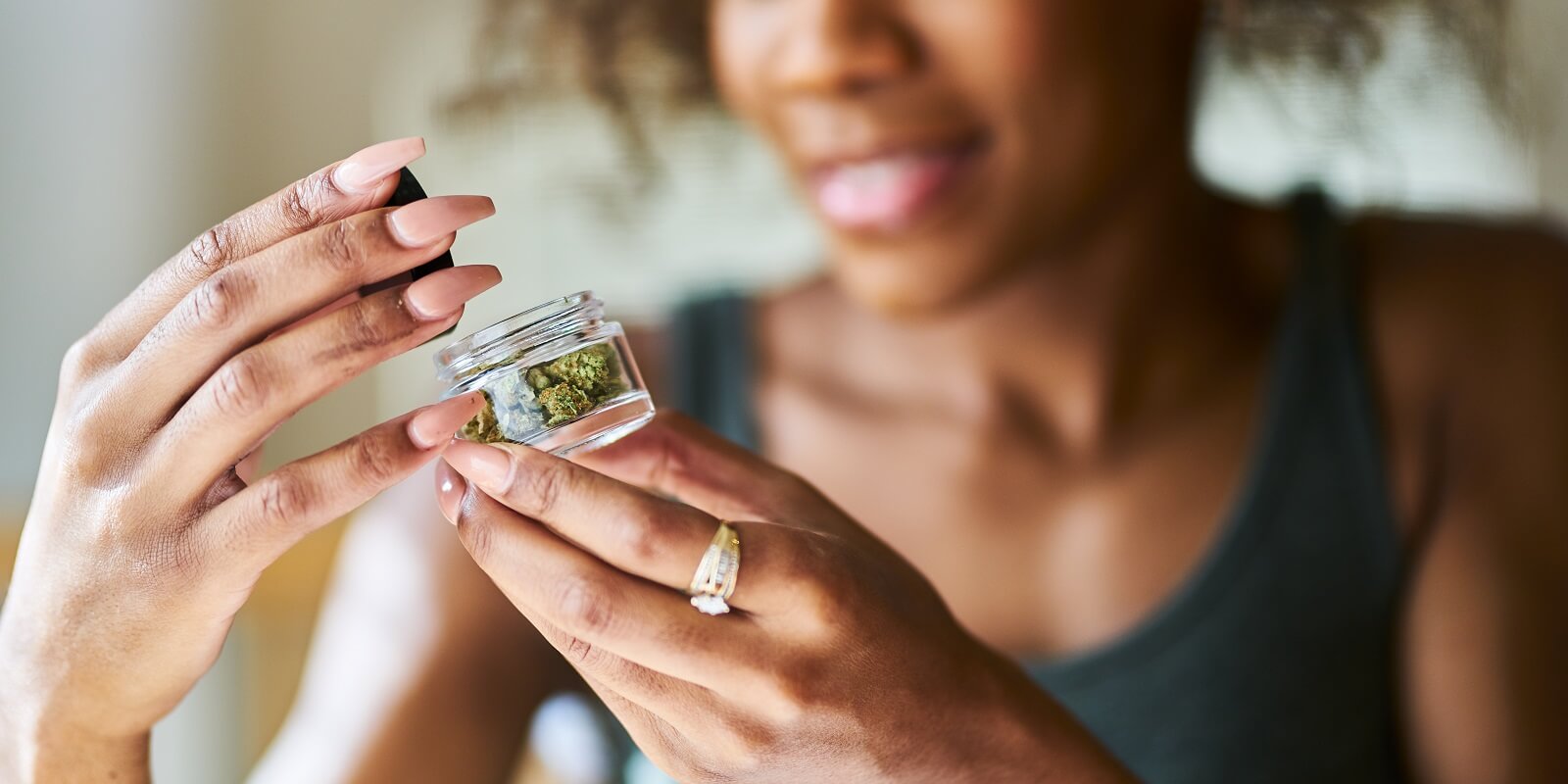- You have no items in your shopping cart
- Continue Shopping

Cannabis enthusiasts know that fresh weed is always the best, but over time, cannabis can lose its potency, flavor, and aroma. This leads many to wonder: Does weed expire? The truth is, cannabis doesn’t “expire” in the traditional sense, but it does degrade over time due to exposure to elements like air, light, and heat. Understanding how cannabis degrades and how to store it properly is crucial for maintaining its potency and avoiding unwanted risks—especially mold contamination.
In this comprehensive guide, we’ll explore how long weed lasts, how to store cannabis correctly, and the risks of using expired or moldy weed. Whether you’re a seasoned cannabis user, a medical marijuana patient, or a novice just learning the ropes, this article will equip you with essential knowledge to maximize your cannabis experience.
Does Weed Expire?
The simple answer is yes, weed does expire—but not in the way you might expect. Unlike perishable foods, cannabis doesn’t “spoil” in the traditional sense, meaning it won’t suddenly become harmful or unsafe to consume once a certain date has passed. However, over time, cannabis loses its potency, flavor, and aroma, especially if it’s improperly stored. The active compounds responsible for its effects, such as THC and CBD, degrade with age, leading to a less enjoyable and effective experience.
How Cannabis Degrades Over Time
Cannabis, like most plant matter, breaks down naturally over time. The cannabinoids (such as THC and CBD) and terpenes (the aromatic compounds responsible for the cannabis smell and flavor) are both sensitive to environmental factors like light, air, heat, and humidity. When exposed to these elements, cannabis slowly degrades, and the effects of the weed become weaker.
THC (tetrahydrocannabinol), the compound responsible for most of cannabis’s psychoactive effects, eventually converts into CBN (cannabinol). While CBN is known for its sedative properties, it’s much less potent than THC. The loss of THC over time is a primary reason why old weed may not provide the same euphoric or energizing effects.
Terpenes, on the other hand, are responsible for the distinct scents and flavors of cannabis. As these compounds degrade, the smell of your weed may become stale, musty, or even moldy. This not only affects the flavor but also diminishes the overall experience, making it less enjoyable for smoking, vaping, or consuming edibles.
How Long Does Cannabis Last?
The shelf life of cannabis depends on the type of product and the storage conditions. Proper storage can significantly extend the life of your cannabis, while improper storage can lead to rapid degradation.
1. Weed Flower
Cannabis flowers (buds) can retain their quality for up to one year if stored correctly. However, to preserve its maximum potency and flavor, it’s best to consume your weed within six months of purchasing or harvesting it. After this period, the degradation process speeds up, and you may notice a decrease in potency and aroma.

Tip: Store weed flowers in airtight glass jars or vacuum-sealed bags to preserve their freshness. Always keep your cannabis in a cool, dark place, as exposure to light and heat accelerates the breakdown of cannabinoids and terpenes.
2. Concentrates
Cannabis concentrates, such as wax, shatter, and vape oil, generally last longer than flower. With proper storage, these products can last up to two years. Like flower, concentrates should be kept in a cool, dark place to prevent degradation. Freezing concentrates can help preserve their potency for even longer, but always ensure the containers are airtight to avoid moisture buildup.
3. Edibles
Cannabis edibles like brownies, cookies, and gummies have a shelf life that largely depends on the other ingredients used. If made with perishable ingredients, they may last only a few weeks to a few months. However, cannabis-infused gummies, hard candies, or beverages with a high alcohol content can last longer.
Tip: Store edibles in airtight containers to prevent moisture and air exposure. Refrigerating perishable edibles can help extend their shelf life.
4. Tinctures and Topicals
Tinctures made with alcohol or glycerin base can last for a long time—up to 10 years—if stored in a cool, dark place. Similarly, cannabis-infused topicals (creams, balms, and lotions) typically last about one year, but they should be discarded if you notice changes in their texture, smell, or color.
Tip: Store tinctures and topicals in their original, tightly-sealed containers to preserve their shelf life.
How to Store Weed for Maximum Freshness
Proper storage plays a huge role in maintaining the quality of your cannabis. If you want to preserve the potency, flavor, and overall quality of your weed, follow these key storage guidelines:
1. Avoid Light Exposure
UV rays from the sun can degrade both cannabinoids and terpenes quickly. To prevent your cannabis from losing its potency, store it in a dark place. Avoid clear plastic bags or containers, as they allow light to penetrate and damage the weed.
Tip: Use opaque or dark-colored glass jars or vacuum-sealed bags to protect your cannabis from light. Store your weed in a drawer or cupboard away from direct sunlight.
2. Control Temperature
The ideal temperature for storing cannabis is around 60-70°F (15-21°C). High temperatures can cause cannabis to dry out and lose potency, while extreme cold can lead to mold growth and cause the trichomes (the tiny, resinous glands on the buds) to become brittle.
Tip: Keep your cannabis in a stable, cool environment. Avoid storing it near heat sources like radiators, ovens, or windows. Do not store cannabis in the fridge or freezer unless absolutely necessary, as this can lead to moisture issues.
3. Maintain Humidity Levels
Humidity control is crucial for preserving your weed. Too much humidity can cause mold and mildew, while too little can dry out your buds. The optimal humidity for cannabis storage is 59-63%. Special humidity control packs are available that can maintain the ideal moisture levels, preventing your weed from drying out or becoming too moist.
Tip: Use humidity packs or a humidifier to keep your weed at the right humidity level. Store it in airtight containers to maintain humidity and prevent exposure to air.
4. Limit Air Exposure
Air exposure accelerates the degradation process by introducing oxygen, which breaks down cannabinoids and terpenes. To preserve the freshness of your cannabis, always store it in airtight containers.
Tip: Vacuum-seal your cannabis or use airtight glass jars with rubber seals to prevent air from getting in.

Risks of Using Moldy Weed
One of the most significant risks associated with old or improperly stored cannabis is mold. Mold growth on cannabis is a serious issue and can pose health risks when inhaled or ingested. Mold can produce harmful mycotoxins, which can cause respiratory issues, allergic reactions, and other health problems, particularly for individuals with compromised immune systems.
Signs of Mold on Weed
- White fuzzy spots or greenish patches on the buds
- Musty or damp smell resembling mildew or mold
- Powdery mildew (white or grayish coating) on the surface of the buds
Tip: If you see any signs of mold or if your weed smells musty or damp, throw it out immediately. Never attempt to smoke, vape, or consume moldy weed, as it can cause serious health issues.
What to Do with Old Weed?
If your weed has lost potency but is not moldy, there are still ways to repurpose it. Here are some creative ideas for using older cannabis:
1. Make Edibles
Even older weed can still be effective for making cannabis-infused butter, oil, or tinctures. The heat from cooking will activate the remaining cannabinoids, allowing you to create edibles like brownies, cookies, or candies.
2. Create Topicals
Old weed can be used to make cannabis-infused balms or creams for topical use. Simply infuse the weed into a carrier oil (like coconut oil) and apply it to the skin for pain relief or skin conditions.
3. Compost It
For those who enjoy gardening, old cannabis can be composted to enrich soil. It decomposes naturally, adding valuable nutrients to your garden.
Conclusion
In summary, while weed doesn’t expire in the traditional sense, it does degrade over time, losing potency, flavor, and aroma. Proper storage is essential for preserving the quality of your cannabis, allowing you to enjoy the best possible experience. Be sure to store your weed in airtight containers, away from light, heat, and excessive moisture. If your weed becomes moldy, never consume it, as mold can lead to serious health issues. With proper care, your cannabis can stay fresh and potent, providing a consistently enjoyable experience.
Disclaimer: This content is for educational purposes only. The information provided is derived from research gathered from external sources.
- https://mood.com/blog/does-weed-get-old
- https://lyphe.com/does-weed-expire/
- https://leafwell.com/blog/does-weed-expire
- https://doi.org/10.1080/00450610903258144
- https://doi.org/10.1093/jpp/28.1.1
